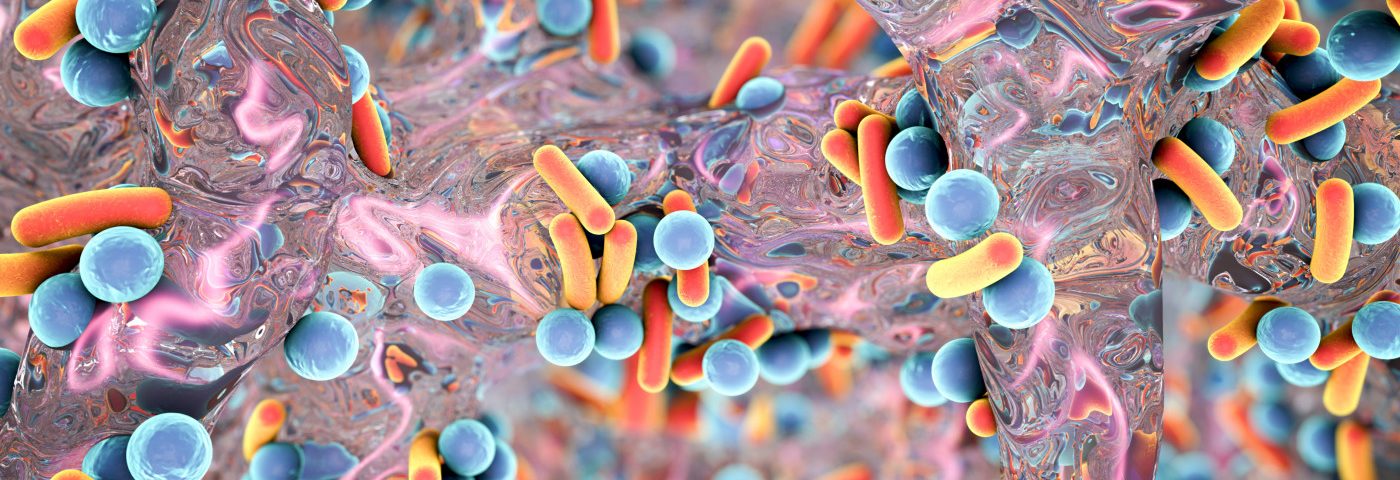Mothers exposed to antibiotics during pregnancy may increase their child’s risk of inflammatory bowel disease (IBD) later in life, said researchers at New York’s NYU Langone Health.
Their study, “Intergenerational transfer of antibiotic-perturbed microbiota enhances colitis in susceptible mice,” appeared in the journal Nature Microbiology.
Antibiotics can alter the natural community of gut microbes, collectively known as the microbiome. During pregnancy, exposure to antibiotics may deprive the offspring of vital microbes that help maintain a healthy gut.
Determined to learn whether “the transfer of an antibiotic-perturbed microbiota from mothers to their children could affect their risk of developing IBD,” researchers inoculated pregnant mice with a gut microbiome that had been exposed to antibiotcs.
The results showed that the antibiotic-shaped microbiome not only thrived in the mothers but was also transmitted to their offspring, although the microbes in the pups were less diverse. After birth, the pups retained the altered microbiome for at least 21 weeks.
Researchers repeated these experiments, but this time they compared pups born from wild-type (control) mice and those from mice that had been genetically engineered to lack a protein called interleukin 10 (IL-10). The absence of IL-10 makes mice susceptible to colitis.
They found that pups born from IL-10-deficient mice that received the antibiotic-altered microbiome developed colitis in much higher proportions than those which inherited a normal microbial population. In fact, the inflammation score was 55 times higher in the pups that inherited the deficient microbiome.
These findings support the interplay of both genetic and environmental factors in shaping the risk of developing IBD.
“Our results provide strong evidence that antibiotics change the baby’s inherited microbial communities with long-term disease consequences, which is especially important given the widespread use of antibiotics in young women before and during pregnancy,” Dr. Martin Blaser, the study’s lead author and a microbiology professor at NYU Langone Health, said in a press release. “Our study shows that the changes made to the microbiome by antibiotic exposure can be transmitted across generations, from moms to their offspring, which is consistent with our work and that of others in humans.”
Overall, authors concluded, “our findings indicate that antibiotic exposure shaping the maternal gut microbiota has effects that extend to the offspring, with both ecological and long-term disease consequences.”

